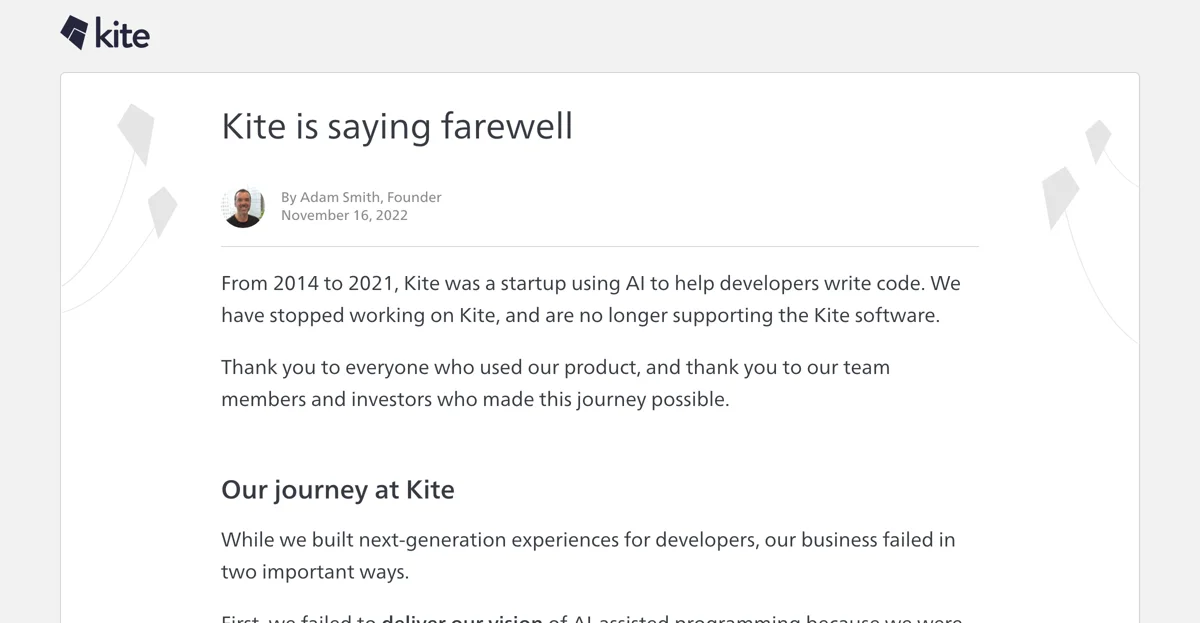Kite embarked on a mission to revolutionize the way developers write code by leveraging artificial intelligence. From its inception in 2014 until its closure in 2021, Kite focused on creating a next-generation AI assistant that could significantly improve coding efficiency. Despite assembling a world-class engineering team and developing advanced AI technologies, Kite faced challenges that ultimately led to its discontinuation.
One of the primary hurdles was the premature market entry. The technology required to realize the vision of AI-assisted programming was not yet mature. Kite's AI, although state-of-the-art at the time, did not achieve the tenfold improvement in developer productivity necessary to make a substantial impact. This limitation is evident in the broader context of machine learning applications in coding, where even leading solutions like GitHub Copilot are still evolving.
Another significant challenge was the monetization strategy. Despite amassing a user base of 500,000 monthly-active developers with minimal marketing expenditure, Kite struggled to generate revenue. The reluctance of individual developers to pay for productivity tools, coupled with the specific demands of engineering managers for discrete new capabilities, highlighted a misalignment between the product's value proposition and market expectations.
In the face of these challenges, Kite explored pivoting towards code search as a new direction that could leverage its AI technology and developer-centric approach. However, after seven years of intense effort and the inherent stresses of startup life, the team decided to conclude their journey with Kite.
The legacy of Kite is not just in the technology it developed but also in the courage and dedication of its team, investors, and users. The experience underscores the complexities of bringing AI innovations to market and the importance of aligning product development with business strategy. As the AI landscape continues to evolve, the lessons learned from Kite's journey will undoubtedly inform future endeavors in AI-assisted programming.

